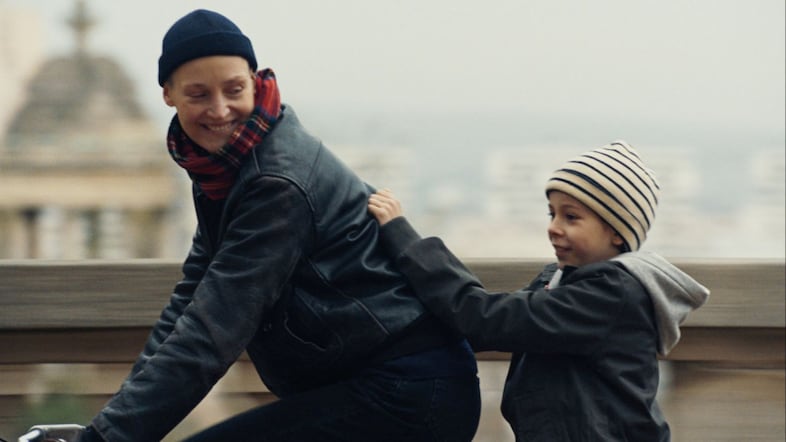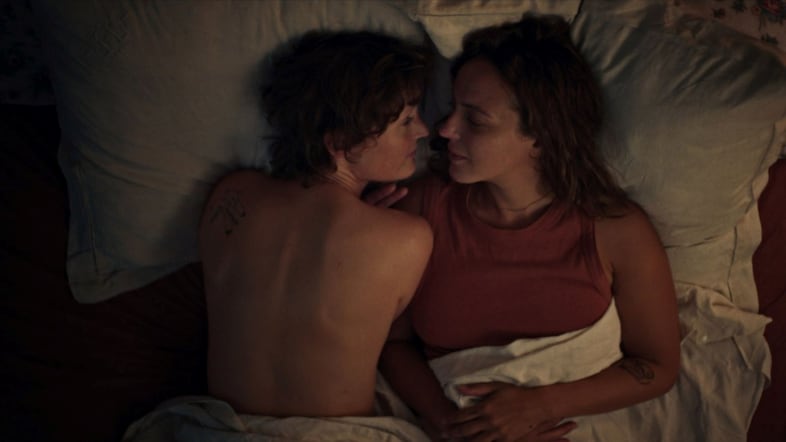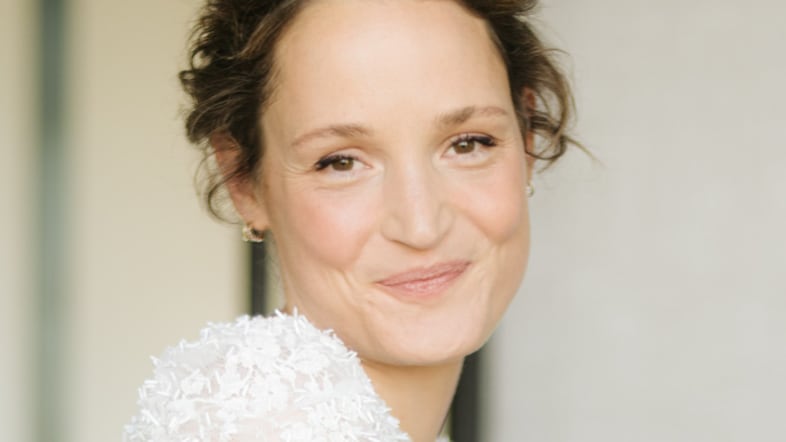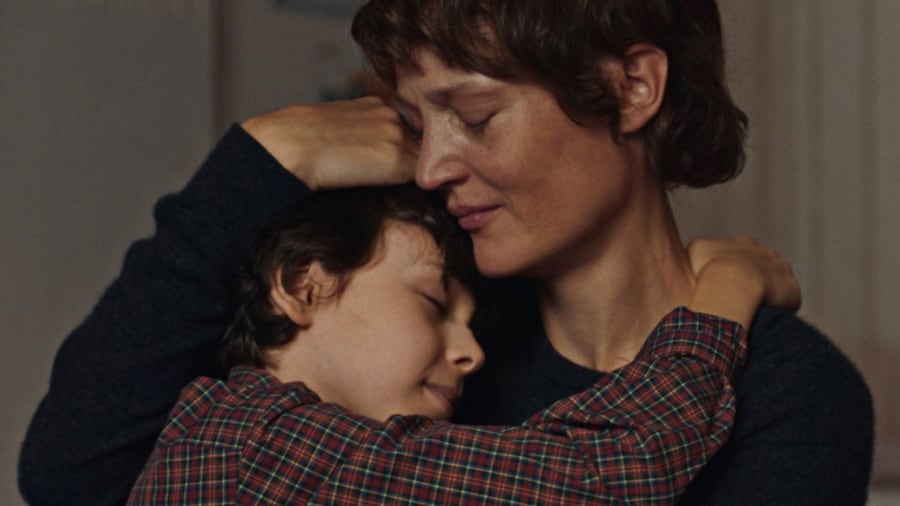The Phantom Thread star reflects on her “shocking” new character study, adapted from Constance Debré’s acclaimed novel
Vicky Krieps often plays women who are ferociously unconventional. There is, for instance, the 19th-century Austrian empress with a tattooed shoulder and a heroin habit (in Marie Kreutzer’s Corsage); the muse in a sadomasochistic dance with her fashion designer lover (in Paul Thomas Anderson’s Phantom Thread); the harassed, defiant frontier bartender (in Viggo Mortensen’s feminist western The Dead Don’t Hurt); and the lesbian widow in a dangerous bond with a ghost (in Samuel Van Grinsven’s Went Up the Hill). Now the Luxembourgish-German actress stars in Anna Cazenave Cambet’s Love Me Tender as Clémence, another misfit who leaves a heterosexual relationship of 20 years and a stable law career in search of truer authenticity, only to find society will not let her out of the box easily. As her vengeful ex Laurent (Antoine Reinartz) alienates her eight-year-old son from her, her life becomes split between resisting his fight for sole custody and her exploration of new horizons of sexual desire and possibility.

Of her many intense roles, Clémence was the most emotionally taxing yet, says Krieps when we meet at the Karlovy Vary film festival in the Czech Republic where she’s come to present the film and receive a President’s Award in recognition of her work at the opening ceremony. “Clémence is suffocating because of everyone around her, that was the painful thing,” she says. “Women are not allowed to leave the role we are given, and if we dare, society will punish us for it.”
In a yellow suit, with the word “surrender” inked in small, curled letters up her wrist, Krieps cuts a figure that seems precise and put-together, but with no fear of venturing into life’s wilder edges – fitting for an actress who tells us she uses “two brains” to access a character. “One brain does the homework,” she says, describing how she watches people in cafes and absorbs how they move to get into a role. “The other part tries to just forget everything, and react to what’s coming. I believe there is a little element of acting that we don’t understand. It’s like in music, when you open yourself [up] to something else, another intuition can come in that knows more than what you know. I don’t try to give it a name, but it’s definitely there.”

As sudden as the breakdown in Clémence’s formerly amicable relationship with her ex is, Love Me Tender is based on reality. It’s the second book in a semi-autobiographical trilogy by Constance Debré, who was born into an illustrious French family, and called time on her marriage and professional success as a criminal defence lawyer to pen intimate accounts of searching for herself on the Paris queer scene as she dispensed with a bourgeois family model, only to be plunged into a fierce custody battle.
“The thing is, Clémence writes about it,” says Krieps. “She describes precisely her sexual relationships and conquests, so it is very shocking in a way. She’s behaving like a man, like John Wayne, but a woman isn’t supposed to do that.” The actress draws a parallel between Laurent’s reaction and the violent 18th-century rivalries that erupt between suitors and other aggrieved men in Stanley Kubrick’s epic costume drama Barry Lyndon, which she had watched the day before in a festival retrospective screening. “Why did they have these duels? What was that really? When someone looks at you a certain way, and you want to take it outside, it’s the same weird thing of pride and having to have your revenge. Where that comes from in human nature, I don’t know.”

Today, there are more roles available for women that do not pander to reductive stereotypes, but funders remain reluctant to back them, says Krieps: “If your character is questionable morally or politically, they will say, ‘Oh, but nobody will like this woman.’ Even if you don’t give an answer but leave it open that she could be an asshole, it’s already too much for them. The good thing is if you don’t have money, they don’t tell you what to do, so films have their own voice, which in the end, I kind of prefer.”
For Krieps, that’s cinema’s ultimate power: to create “a space of forgiveness” for the outer limits of the human spectrum. “As a teenager, I remember watching movies and feeling embraced by this space that opens just for you,” she says. “You’re allowed to travel and dream with these characters, and see them be crazy, bad, good, in love or not in love. It lets you off the hook for a moment in your own life, from what you’re supposed to do and how you’re supposed to be.”
